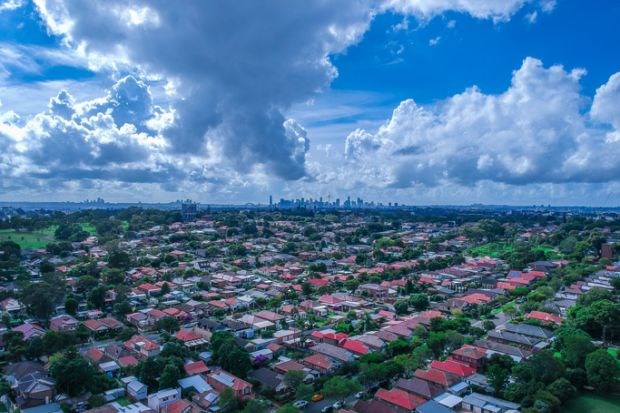Western Sydney University “pragmatically” left the term “climate change” out of a research institute’s title, while Australian universities could still “face opposition” on sustainability at a political level, according to one of the institution’s leaders.
Clare Pollock, senior deputy vice-chancellor and provost at Western Sydney University, made the comments at the Times Higher Education Innovation and Impact Summit, hosted by KTH Royal Institute of Technology in Stockholm.
She was speaking after Western Sydney, founded in 1989 and now with 50,000 students, was announced as the top university in the THE Impact Rankings 2022.
As an example of the university’s connection with its communities, Professor Pollock highlighted its Hawkesbury campus on the north-west fringe of Sydney, which has the Hawkesbury River flowing through it and is the centre for the university’s agriculture and climate and sustainability research, including on water sustainability.
The Hawkesbury Institute for the Environment benefited from A$40 million (£22.7 million) in government grant funding announced in 2012.
“We were going to call it the Hawkesbury Institute for Climate Change – and there had been an election and the federal government that had been elected didn’t believe in climate change,” said Professor Pollock. “So we made the very pragmatic decision to call it the Hawkesbury Institute for the Environment. But we retained the funding.”
She added: “We don’t call it climate change [in the title of the institute], but we still go ahead and subversively explore it.”
The federal government led by former prime minister Tony Abbott, who in 2009 called climate science “absolute crap”, was not elected until 2013.
Western Sydney sets targets for its progress towards all 17 of the UN Sustainable Development Goals, reporting progress annually, Professor Pollock told the event.
In the wake of the pandemic and other crises, she said she was “worried, within the Australian context, if sustainability doesn’t start to fall down in terms of the importance. We’ve got health crises, we’ve got wars – all of which can be addressed through the Sustainable Development Goals. But I’m worried we will face challenges at a political level in terms of the way we will need to address immediate needs from a government perspective, and face opposition to some of the things we need to do.”
In terms of other aspects of Western Sydney’s impact Professor Pollock said it had “moved from being on that classic campus-based environment, which to be honest is quite removed from our community”.
She added: “We were the developers of a major multistorey development in the centre of Liverpool, in western Sydney. And we placed it right next to a shopping centre. This was all about providing access for the local community.”
Highlighting the fact that 66 per cent of Western Sydney’s students are the first in their family to go to university, in a part of Sydney with a high migrant and refugee population, she added: “If students had wanted to study at university before we were born they would have had to travel all the way into what is seen as being the foreign part of the city.
“So we moved our campus into the CBD [Central Business District] next to a shopping centre. The local high school students, when they are waiting for the bus, they come and sit in the bottom of our basement.”
The university had thus “attracted investment” into Liverpool; “we sublease to industries of various size to bring them to the centre of that community”, she added, with the university planning a similar development in Bankstown.






